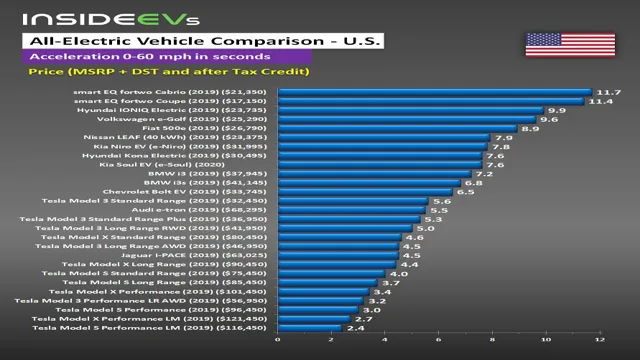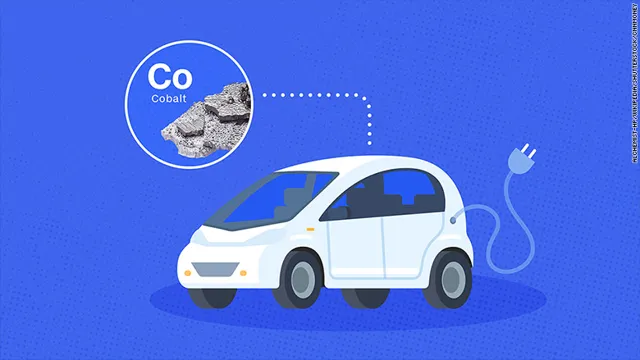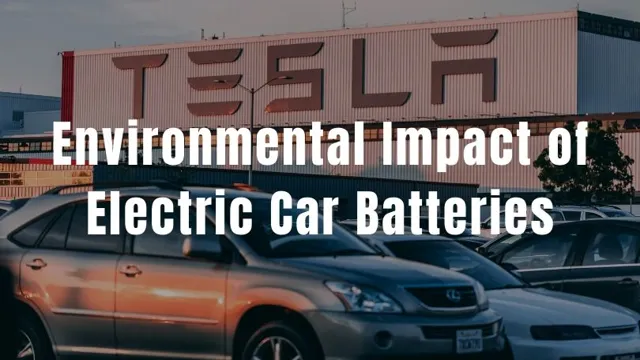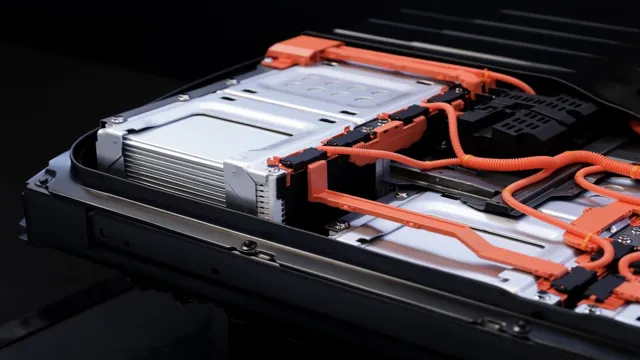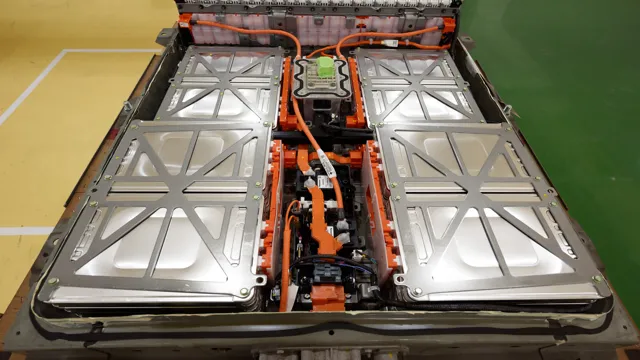Revolutionizing the Road: The Latest Battery Breakthroughs for Electric Cars
Electric vehicles (EVs) have been gaining popularity in recent years, with more and more people seeing the benefits of sustainable transportation. However, one of the biggest challenges to widespread EV adoption remains battery technology. Current batteries have limited capacity and take a long time to charge, making long trips inconvenient.
But breakthroughs in battery technology are promising to change the game. Numerous companies and research institutions are exploring new materials, designs, and charging methods that could revolutionize the EV market. In this blog, we’ll explore some of the latest battery breakthroughs and what they mean for the future of electric vehicles.
Current State of Electric Car Batteries
Battery breakthroughs have been a hot topic in the world of electric cars. With the increasing demand for more sustainable forms of transportation, researchers have been working tirelessly to improve the efficiency and range of electric car batteries. The current state of electric car batteries shows significant progress in terms of energy density, cost, and lifespan.
As technology advances, the development of solid-state batteries, which promise to offer even higher energy capacity and faster charging times, could be the future for electric vehicles. In addition, recent breakthroughs in recycling and repurposing used batteries could help reduce waste and make electric cars more environmentally friendly. These advancements are vital for the growth of the electric car industry and will enable more consumers to switch to sustainable transportation options.
Low Energy Density
Electric car batteries are becoming increasingly popular due to their low environmental impact and cost savings compared to gasoline-powered vehicles. However, the current state of electric car batteries is limited by low energy density. Energy density refers to the amount of energy that a battery can store per unit of volume or weight.
Traditional lithium-ion batteries, which are commonly used in electric cars, have an energy density of about 100 to 265 watt-hours per kilogram (Wh/kg). This means that the range of electric cars is still limited, and drivers may need to recharge more frequently than they would refuel a gas-powered car. To address this issue, researchers are exploring alternative battery materials and designs to achieve higher energy density, such as solid-state batteries or lithium-sulfur batteries.
These new technologies could lead to longer range, faster charging, and overall more efficient electric cars.
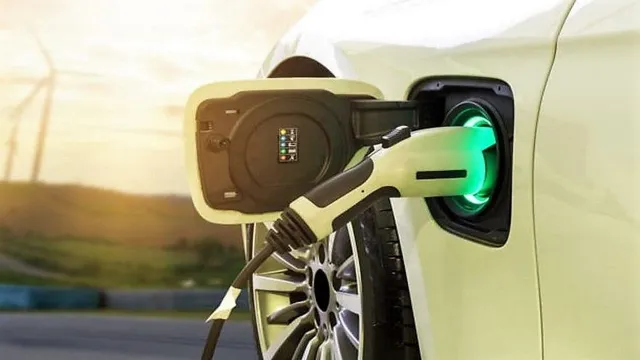
High Cost
Electric Car Batteries Electric vehicles are becoming more and more popular, but their high cost is still a major barrier to widespread adoption. A large part of this cost is due to the current state of electric car batteries. While battery technology has come a long way, they’re still expensive to produce and contain rare materials.
As a result, the cost of an electric car’s battery can be upwards of $10,000, which is a significant portion of the overall cost of the vehicle. While this high cost is a challenge for the wide adoption of electric cars, research is being done to find ways to reduce these costs and make electric vehicles more accessible to consumers.
New Developments in Battery Technology
Battery breakthroughs are paving the way for electric cars to become more practical and widely adopted. Scientists and engineers are finding ways to increase the efficiency and lifespan of batteries, while also reducing their environmental impact. One major development is the use of solid-state batteries, which replace the liquid electrolyte in traditional batteries with a solid material.
These batteries can potentially store more energy, last longer, and be safer than current lithium-ion batteries. Another breakthrough is the use of nanotechnology in battery design, which allows for higher energy density and faster charging times. Additionally, researchers are exploring the use of renewable materials, such as seaweed and hemp, to create sustainable batteries.
As these developments continue to progress, the future of electric cars looks more promising than ever before.
Solid-State Batteries
Solid-State Batteries As technology continues to advance, so does the need for better battery technology. Solid-state batteries are a recent development that holds a lot of promise for the future of batteries. Unlike traditional lithium-ion batteries, which use a liquid electrolyte, solid-state batteries use a solid electrolyte.
This makes them safer, as they are less prone to explosions and fires, and more energy-dense, which means that they can store more energy in a smaller space. Additionally, solid-state batteries offer faster charging times and longer lifetimes, making them ideal for a wide range of applications, from electric vehicles to smartphones and laptops. One of the main advantages of solid-state batteries is their safety.
Traditional lithium-ion batteries are known to be flammable, which can be a hazard in certain situations. However, solid-state batteries are much less prone to catching fire or exploding, making them much safer to use. This is because the solid electrolyte is non-flammable and does not vaporize like the liquid electrolyte in traditional batteries.
Another benefit of solid-state batteries is their energy density. Since they use a solid electrolyte, the battery can be made much smaller than traditional batteries while still storing the same amount of energy. This means that solid-state batteries are ideal for portable devices like smartphones and laptops, where space is at a premium.
Additionally, solid-state batteries offer faster charging times and longer lifetimes. Since they do not suffer from the same issues as traditional batteries, they can be charged more quickly and can last longer before needing to be replaced. Overall, solid-state batteries hold a lot of promise for the future of battery technology.
With their improved safety, energy density, and charging times, they are sure to find a wide range of applications in the coming years. As the technology continues to evolve, we can expect to see even more advances in solid-state battery technology.
Lithium-Sulfur Batteries
Lithium-sulfur batteries might just be the next major breakthrough in battery technology that we’ve been waiting for. Unlike conventional lithium-ion batteries, sulfur-based batteries are able to hold significantly more energy, making them ideal for applications such as electric vehicles and solar energy storage. Recent developments in this area have focused on improving the longevity of these batteries and reducing manufacturing costs, which were previously major hurdles for their adoption.
With further research and development, we could soon see a shift towards lithium-sulfur batteries replacing the more traditional lithium-ion batteries. So, what does this all mean for us? Cleaner and cheaper energy storage, longer-lasting gadgets and devices, and a more sustainable future.
Graphene Batteries
Battery Technology, graphene batteries, energy storage, sustainable technology The demand for energy is constantly increasing as the world becomes more technologically advanced. As a result, the need for efficient and sustainable technology is more important than ever. Graphene batteries are one of the latest developments in battery technology that show promise in solving some of the current issues with energy storage.
Graphene is a super-strong, ultra-light material that conducts electricity better than copper, making it an excellent material for batteries. Graphene batteries have the potential to deliver more power, faster charging speed, and longer battery life, while also being more environmentally friendly than traditional batteries. As research continues on graphene batteries, many experts believe that they could revolutionize the energy industry, paving the way for a more sustainable future.
Benefits of Improved Electric Car Batteries
The recent battery breakthroughs for electric cars can revolutionize the way we think about transportation. With more efficient and longer-lasting batteries, electric vehicles will become more practical and affordable for everyday use. Not only will this help reduce carbon emissions and improve air quality, but it will also provide cost savings in the long run.
Plus, the advancements in battery technology mean that electric cars will be able to travel longer distances before needing to recharge, making road trips and longer commutes possible. This is truly a game-changer for the automotive industry and the environment. With battery breakthroughs, electric cars are becoming more accessible and viable for the average consumer, paving the way for a greener future.
Longer Range
Improved electric car batteries have a lot of benefits, especially when it comes to range. With these new and improved batteries, electric cars can travel longer distances without the need for recharging. This is great news for electric vehicle owners who are looking to take longer road trips without worrying about running out of juice.
Additionally, longer range electric cars can help to reduce range anxiety, which is a common worry among electric car owners. By providing more range, drivers can feel more confident and relaxed while driving their electric vehicles. Improved batteries also mean that electric cars could become more cost-effective, as drivers won’t need to recharge as often, which could help to lower their energy bills in the long run.
Overall, longer range electric cars could help to revolutionize the way we travel, making electric vehicles more practical and affordable for everyone.
Reduced Cost
As electric cars become more prevalent, the cost of manufacturing these vehicles is gradually decreasing. One significant factor is the development of improved electric car batteries, which has led to a reduction in manufacturing costs. These batteries are becoming more energy-dense and have longer lifespans, making them more efficient and durable.
With increased efficiency, the range of the vehicles has also significantly increased, reducing the need for frequent charging. By improving electric car batteries, manufacturers can reduce their costs, which ultimately trickle down to the consumer. As a result, electric cars are becoming more financially feasible for the average consumer, leading to increased adoption.
Ultimately, the benefits of improved electric car batteries extend beyond just environmental preservation; manufacturers save on production costs, and consumers can enjoy more economical vehicles.
Future of Battery Technology for Electric Cars
Battery breakthroughs for electric cars are on the horizon, and they could revolutionize the way we think about electric vehicles. As of now, the biggest limitation for electric cars is their battery life. But with new advancements in battery technology, we could see electric cars with ranges of over 500 miles on a single charge.
Scientists and engineers are working on developing new lithium-ion batteries that can store more energy and charge faster than ever before. Other exciting breakthroughs include solid-state and flow batteries, which offer even greater energy density and longer lifetimes. With these advancements, it’s only a matter of time before electric cars become the norm on our roads and highways.
And as battery technology continues to improve, we can expect to see electric vehicles that are not only more affordable, but more powerful and practical than ever before. So, buckle up and get ready for the future of electric cars!
Conclusion
In conclusion, the search for a game-changing battery breakthrough for electric cars has been a long and winding road. But with recent advancements in battery technology and the increasing demand for sustainable transportation, it is only a matter of time before we see a real shift towards fully electric vehicles. Whether it’s through the development of solid-state batteries, supercapacitors or some other yet-to-be-discovered innovation, the electric car revolution is here to stay.
So, buckle up and enjoy the ride, because it’s guaranteed to be electrifying!”
FAQs
What is a battery breakthrough?
A battery breakthrough refers to a significant improvement or innovation in battery technology that allows for longer-lasting and more efficient batteries.
How does a battery breakthrough impact electric cars?
A battery breakthrough can greatly impact electric cars by allowing them to have longer ranges, faster charging times, and lower battery costs, making them more practical and affordable for consumers.
Are there any recent battery breakthroughs that have been made specifically for electric cars?
Yes, there have been several recent breakthroughs in battery technology that are specifically designed for electric cars, such as solid-state batteries, lithium-sulfur batteries, and silicon-anode batteries.
When can we expect to see these battery breakthroughs implemented in electric cars?
While some of these battery technologies are still in development and experimental stages, others are already being integrated into electric cars and could become more widely available in the next few years as production and commercialization efforts continue to progress.

